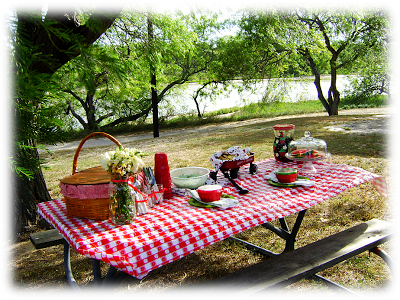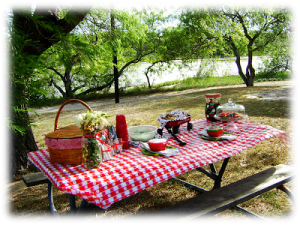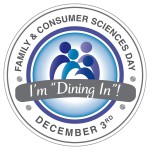by Ginny Hinton | Sep 25, 2016
With an alarming divorce rate that has rapidly escalated during the last half of the 20th century, many couples are part of a growing group focusing on developing a healthy marriage. Research shows that there is a clear link between a healthy marriage and better health for men and women. Children also grow and thrive when the relationship between their parents is strong. What then, are the keys to building a long-lasting, healthy relationship?
It is important to not buy into prevalent marriage myths, such as “Never go to bed angry” or “If we have a big disagreement, our relationship is doomed”. Another common myth is, “Marriage should be a 50/50 relationship”. These myths can build unrealistic expectations. If you ever feel like your relationship is “not going the way it is supposed to”, check to make sure you’re not buying into an idealistic myth about marriage.
According to the latest research, there are three major factors that largely influence marital satisfaction.
 Couple Traits and Interactions include communication and intimacy. Intimacy is a combination of affection, sexual relations, emotional closeness from time spent together and the ability to be open and vulnerable with each other.
Couple Traits and Interactions include communication and intimacy. Intimacy is a combination of affection, sexual relations, emotional closeness from time spent together and the ability to be open and vulnerable with each other.
- Individual Traits and Behavior include taking care of our own social, emotional and spiritual needs. Paying attention to personal needs contributes to satisfaction within the marriage.
- Background and Contexts serve as the foundation for building the other traits. They include everything each partner brings to the marriage, for example: individual backgrounds, values, culture, etc. plus qualities of the marriage itself such as how the partners deal with money issues and in-laws.
Marriages grow and change throughout the relationship. Understanding and practicing the key skills involved in building a marriage can help create a more joyful and fulfilling journey.
For more information about building a healthy and strong marriage, visit SMARTcouples.org.
Adapted from “10 Things You Need to Know Before You Get Married”, by Victor W. Harris and Ginny Hinton, 2012. http://www.edis.ifas.ufl.edu document FCS2319.

by sbouie | Jul 17, 2016
 Picnics are a great opportunity for families to enjoy the great outdoors. It provides time to experience special bonding while enjoying the fresh air and delicious food. However, we should always be cautious of food borne illness.
Picnics are a great opportunity for families to enjoy the great outdoors. It provides time to experience special bonding while enjoying the fresh air and delicious food. However, we should always be cautious of food borne illness.
Let’s keep food and your family safe from the start! Whether the foods are from home, a store, or restaurant, follow the simple rules of keeping hot foods hot and cold foods cold. Remember that bacteria can grow fast at temperatures between 40°F and 140°F – the Danger Zone. Eat and promptly chill leftovers within two hours, and if the outside air temperature is above 90°F, do so within one hour.
If you plan to cook on site, make sure raw meats are packed well and are separated from ready-to-eat foods to prevent any cross-contamination. All perishable foods must be kept cold (40°F or below) in insulated boxes with enough ice, frozen gel packs, or other cold source, such as a container of frozen water. If possible, bring an appliance thermometer along to monitor the box temperature. When you grill the meat, make sure it is cooked to the right temperature. Also, bring enough potable water if none will be available at the site, and pack clean, wet, disposable cloths or moist towelettes and paper towels for cleaning hands and surfaces. Keep your tailgate party fun and bacteria-free for your family’s well-being!
Besides the food, plan your time. Plan some fun outdoor games that the entire family will enjoy. You may even plan a nature walk, name the cloud’s shape, or be creative and create your own activity. Whatever you plan, always involve the entire family. Every family member should be included.
This is the best time to say “no electronic devices.” This is time for the family to have face time without interruptions – time to talk to each other and grow closer. Picnic time translates “it’s family time” – eating outside in the fresh air and enjoying your family.
Reference: Food Safety and Tailgating, Amy Simonne. EDIS Publication #FAR8712

by sbouie | May 19, 2016

Family game night promotes bonding.
Photo credit: commons.wikimedia.org
Warmer weather is here and it is time to plan some fun activities with the family. This is also the time of year when many city organizations have prepared outstanding festivals. Most festivals have something for everyone in the family.
It is always important to socialize as a family. This increases family bonding. Time together, whether outdoors or inside, is vital. There are numerous ways to bond with your family, such as:
- Eating meals together
- Attending children’s extra-curricular activities together
- Reading together
- Going to the library as a family
- Volunteering together
- Family movie night
- Family game night and many more
There are many benefits to planning and having family bonding time. These include:
*Educational Benefits
- Increased focus on homework and reading for pleasure (Eisenberg, Olson, Neumark-Sztainer, Story, & Bearinger, 2004)
- Improved school performance (Hamilton & Wilson, 2009)
- Greater development of language skills (Snow & Beals, 2006)
- Increased and more sophisticated level of vocabulary (Snow & Beals, 2006)
Health Benefits
- Improved development of healthy eating patterns (Hamilton & Wilson, 2009)
- Higher intake of several essential nutrients (Croll, Hannan, Neumark-Sztainer, Perry, & Story, 2003)
- Decreased likelihood of having eating disorders (Ackard & Neumark-Sztainer, 2001)
- Decreased likelihood of being overweight (Fulkerson, Kubik, Story, Lytle, & Arcan, 2009)
- Less likely to develop depressive symptoms (Fulkerson et al., 2009)
Social and Behavioral Benefits
- Less likely to be involved with cigarette, alcohol, and marijuana use (Eisenberg et al.,2004)
- Increased sense of family connectedness, communication, and functioning (Hamilton &Wilson, 2009)
- Increased likelihood of resisting negative peer pressure (Fulkerson et al., 2006)
- More likely to experience positive identity assets (Fulkerson et al., 2006)
- Less likely to attempt suicide (Fulkerson et al., 2006)
- Less likely to engage in sexual intercourse (Fulkerson et al., 2006)
Overall Benefits for the Family
- Regular and consistent family time
- Reduction of anxiety and depression in children
- Increased feelings of togetherness, coherence, and solidarity
- Increased emotional and social bonding
- Shared nutrition
- Relaxing, talking, and laughing as a family unit
Family bonding sets the foundation for a strong family. Family bonding gives your children stories for their present and later years. Enjoy your family time!
*”Benefits of Family Meals”, Varnessa McCray, Victor W. Harris, and Martie Gillen, This document is FCS2324, one of a series of the Department of Family, Youth and Community Sciences, Florida Cooperative Extension Service, Institute of Food and Agricultural Sciences, University of Florida. Original publication date April 2013. Visit the EDIS website at http://edis.ifas.ufl.edu.
by Angela Hinkle | Apr 1, 2016
“Breaking bread”, or eating a meal with others, is a deeply personal way to foster a sense of belonging. Food is a social glue; it brings us together for conversation, a time to catch up, a chance to connect with loved ones, and it fills our bellies as well.
If you wish to “break bread” (with actual bread), here are some nice, tasty bites of information.
- The hypnotic, heavenly, warm, welcoming aroma of freshly baked bread makes many of us feel that all is right with the world and provides a sense of comfort.
- Researchers have found that the smell of baking bread triggers a positive mood that leads to a higher degree of benevolence, kindness, and concern for the welfare of others.
“Bread – like real love – took time, cultivation, strong loving hands, and patience. It lived, rising and growing to fruition only under the most perfect circumstances”. – Melissa Hill, Something from Tiffany’s
- A fascinating thing about bread is that though it is often viewed as a “poverty fuel”, it can feel like a luxury to even the most monetarily wealthy of individuals.
“”There are people in the world so hungry, that God cannot appear to them except in the form of bread”. – Mahatma Gandhi
- If you’re going to break bread with bread, go for healthy whole grain varieties for plenty of good-for-you minerals, vitamins, and fiber.
Break bread for a healthy life.
by Dorothy C. Lee | Nov 27, 2015
 It’s the season to be jolly, but for many of us it’s the season to be overstressed as well. If getting ready for the Holidays is beginning to feel like a full-time job, start rethinking your holiday plans and consider streamlining, or even scaling back, some of your activities.
It’s the season to be jolly, but for many of us it’s the season to be overstressed as well. If getting ready for the Holidays is beginning to feel like a full-time job, start rethinking your holiday plans and consider streamlining, or even scaling back, some of your activities.
Following are some holiday survival tips that can help you save time and money, and preserve the holiday spirit in your heart.
- A few shopping strategies can help you save time and reduce the hustle-bustle stress. Shop early in the month and early in the day.
- Take advantage of free gift boxes and free or low-cost wrapping services. Wrapping presents can take as much time as shopping for them.
- Shop online and have the company wrap and ship gifts directly to recipients. Make sure you are shopping on a secure site. Look for the padlock icon.
- Simplify gift giving by choosing a theme. For example, buy a book or a sweater for everyone on your list.
- Suggest exchanging cards instead of gifts at the office.
- To keep packages sorted, wrap all of each person’s gifts in the same wrapping paper color or pattern.
- Instead of exchanging gifts with a friend you haven’t seen in a while, suggest a Dutch treat lunch date at a nice restaurant.
- Call a family meeting or, if family members are distant, arrange a conference call, or a mass text or email to discuss gift giving. You are probably not the only one who wants or needs to scale back on gifts. Strategies to discuss include drawing names so each individual buys a gift for only one person; giving family gifts; or giving gifts only to the children.
- Establish a spending limit and stick to it. If your holiday cash is limited, make gifts well in advance or think of creative ways to give of your time AFTER the holidays.
- Simplify your plans. You don’t need to decorate every room in your house or give gifts to everyone who sends you one.
- Reduce your entertaining requirements. Plan a themed potluck instead of dinner parties for which you are responsible for all the food. The same goes for family get-togethers. Ask each participant to contribute a dish for the meal.
- Keep your priorities straight: take time to think about what is really important to you; be realistic about how much you can do; don’t be afraid to say no.
- Setting priorities will help keep your schedule manageable. Draft a schedule that includes all the tasks you have to complete, how long you think each task will take, and when each needs to be done.
Most importantly, enjoy the holidays!
For further information contact:
Dorothy C. Lee, C.F.C.S.
UF/IFAS Extension Escambia County
3740 Stefani Road
Cantonment, FL 32533-7792
(850) 475-5230
dclee@ufl.edu
For additional information, go to the University of Florida Solutions for Your Life website, http://www.SolutionsForYourLife.com
by Angela Hinkle | Oct 30, 2015

Family Meal
When I was a kid a million years ago, my family had dinners together. Most meal times were good. I was where I was supposed to be and felt safe, important, and loved. Other meals were not so great. I specifically remember being forced to eat at least one lima bean for which much drama was executed on my part. These days, I love being able to eat dinner with my daughter. When we eat together, we’re happier and healthier, especially if we have fun things to laugh about while we eat.

FCS Dining In Day December 3rd
The payoff comes in benefits for both of us. A variety of research has shown that when we eat meals together as a family we feel closer and we eat more nutritiously. When families have meals together, it gives them the chance to catch up on what is happening in their day. There is also the chance to learn table manners, and some basic cooking skills.
For a quality meal time experience, let every member of the family help make some part of the meal – which can help develop food preparation skills – or try taking turns cooking and cleaning. Make new rituals and share traditions so everyone knows they belong to a special group. Teach youth about their heritage by serving and talking about a favorite family recipe. Offer healthy food choices (they’ll be more willing to choose these foods as they grow). And be sure to have light, easy conversations. Save difficult conversations for another time.
To help you kick start your family meal together this year, commit to “Dining In” on Family & Consumer Sciences Day, December 3, 2015. http://www.aafcs.org/FCSday/. Then add on another family meal, then another, until quality meal times become a healthy part of your family.
 Couple Traits and Interactions include communication and intimacy. Intimacy is a combination of affection, sexual relations, emotional closeness from time spent together and the ability to be open and vulnerable with each other.
Couple Traits and Interactions include communication and intimacy. Intimacy is a combination of affection, sexual relations, emotional closeness from time spent together and the ability to be open and vulnerable with each other.







